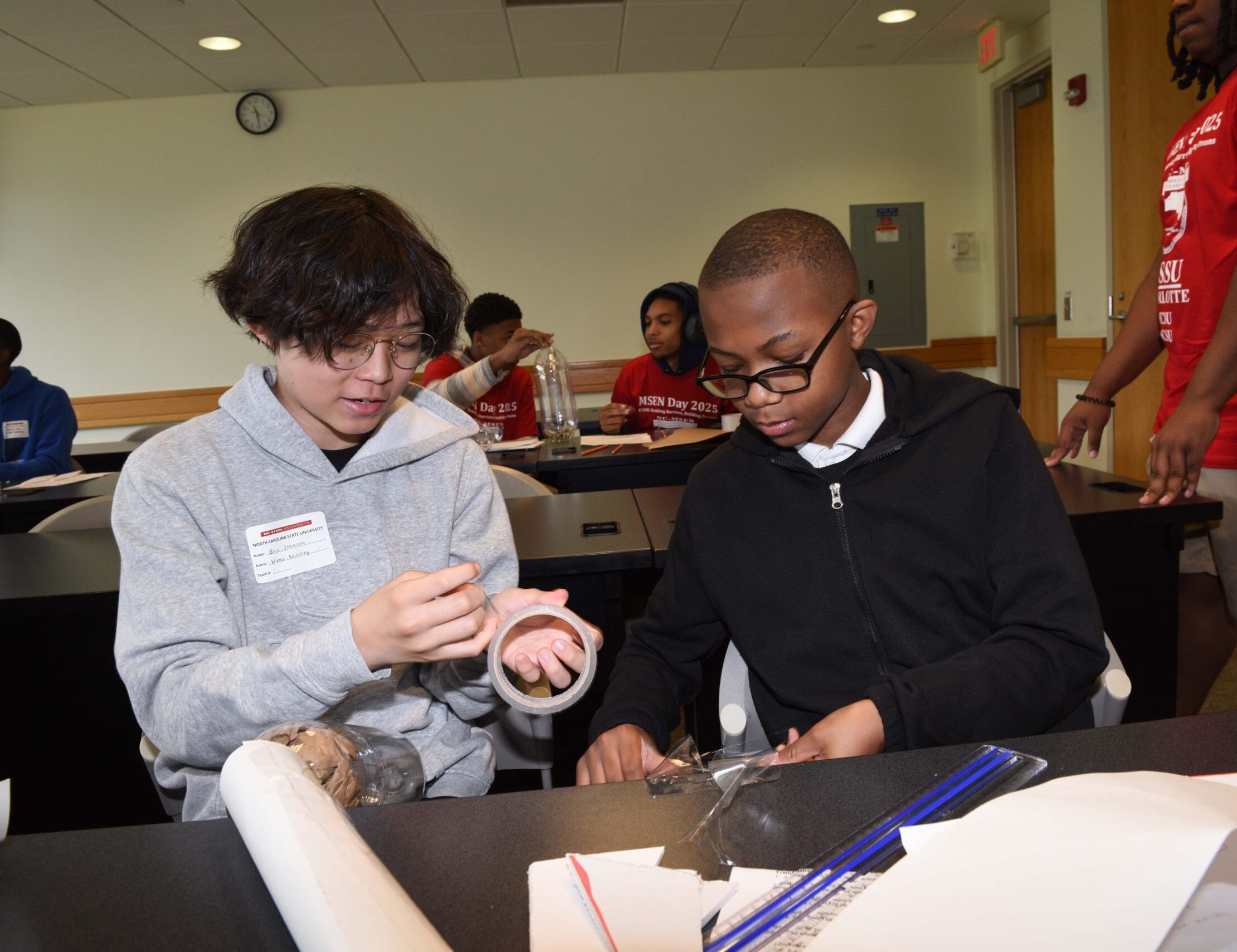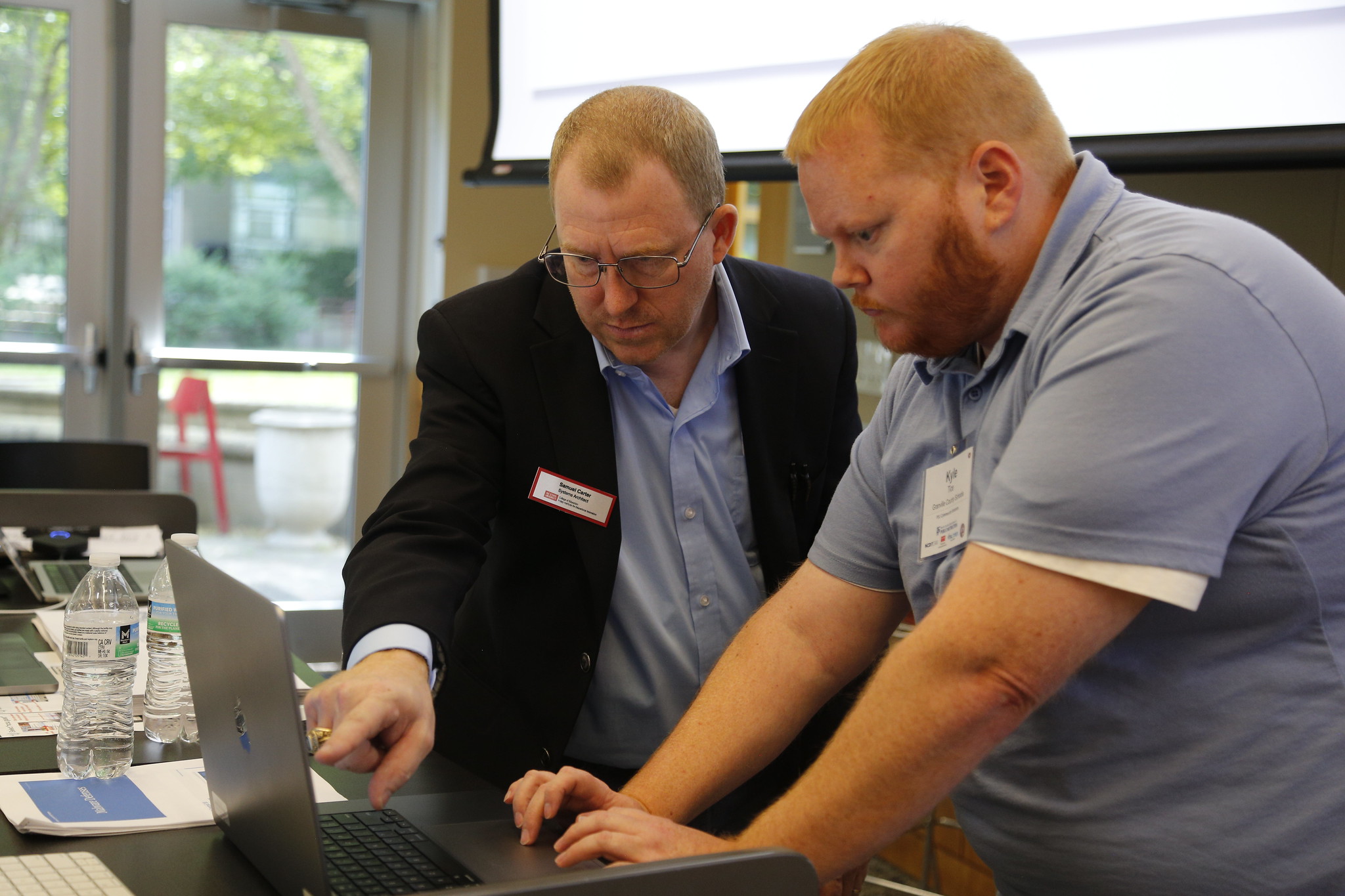Collaborative Team at Friday Institute, College of Education to Assess ATR Program Impact on Teaching and Learning in North Carolina with New NCDPI Grant

A recently funded one-year, $249,909 North Carolina Department of Public Instruction (NCDPI) grant will allow a collaborative team from the Friday Institute for Educational Innovation and the NC State College of Education to assess the impact of the teacher compensation models and advanced teaching roles (ATR) program on teaching and learning in North Carolina. In addition, this evaluation includes a comparative analysis of program implementation in order to help identify and scale the most effective components of these programs.
“It is an incredible honor to serve as the evaluators of the advanced teaching roles program,” said Callie Edwards, acting director of the Program Evaluation and Education Research (PEER) Group at the Friday Institute and the project’s principal investigator. “Our group has a deep respect for the work of educators, and we had the privilege to evaluate the pilot program from 2016-2020. We are thrilled to continue this important collaboration with DPI, and we have assembled a dynamic team with expertise in qualitative, quantitative and survey methods to answer our questions of interest.”
The project team for this grant, titled “Teacher Compensation Models and Advanced Teaching Roles: Evaluation Scope of Work,” includes co-principal investigators Shaun Kellogg, interim executive director at the Friday Institute, and Lam Pham, assistant professor in the College of Education. Also on the team are Sarah Bausell, Marie Himes, Emily Thrasher, James Birkett and Victor Cadilla from the Friday Institute and Tamara Young in the College of Education.
The purpose of the project is to understand the impact of ATR on school culture, teacher retention, classroom instruction and student learning; describe the similarities and differences in how public schools are implementing ATR and identify factors supporting or impeding ATR efforts.
ATR allows highly effective classroom teachers to impact an increased number of students by assuming accountability for additional students (e.g., lead classroom teacher/coach, leading professional development, etc). It also enables local school administrative units to create innovative compensation models.
The North Carolina General Assembly recently changed ATR from a pilot to a program with the intent of growing its use in all North Carolina schools. This evaluation will allow NCDPI to report on the efficacy of the plan to the State Board of Education and the General Assembly as well as establish expectations with the participating districts on what data collection requirements come with participation in the program. Once the State Board of Education has approved the final version of the evaluation plan, it can be incorporated into the request for proposals that is conducted each year for new applicants.
For this project, Phase I of the comparative analysis of models and programs will consist of gathering data through program documentation, surveys and group interviews in order to describe compensation models and ATR approaches developed by public school units (PSUs) and gathering perceptions of program impact and areas. Phase II of the comparative analysis will include site visits to a number of participating PSUs in order to conduct classroom observations with an eye toward impact of these programs on classroom instruction as well as how classroom conditions may support or impede the efficacy of these programs. The evaluation team will examine the measurable impacts of ATR on student achievement and growth, teacher recruitment and retention, teacher effectiveness and instructional practices and school culture.
The Friday Institute for Educational Innovation advances K-12 education through innovation in teaching, learning and leadership by bringing together students, teachers, researchers, policymakers and educational professionals to foster collaborations that improve education for all learners. The Friday Institute for Educational Innovation is part of NC State’s College of Education, one of the leading land-grant colleges of education in the nation.
- Categories:


